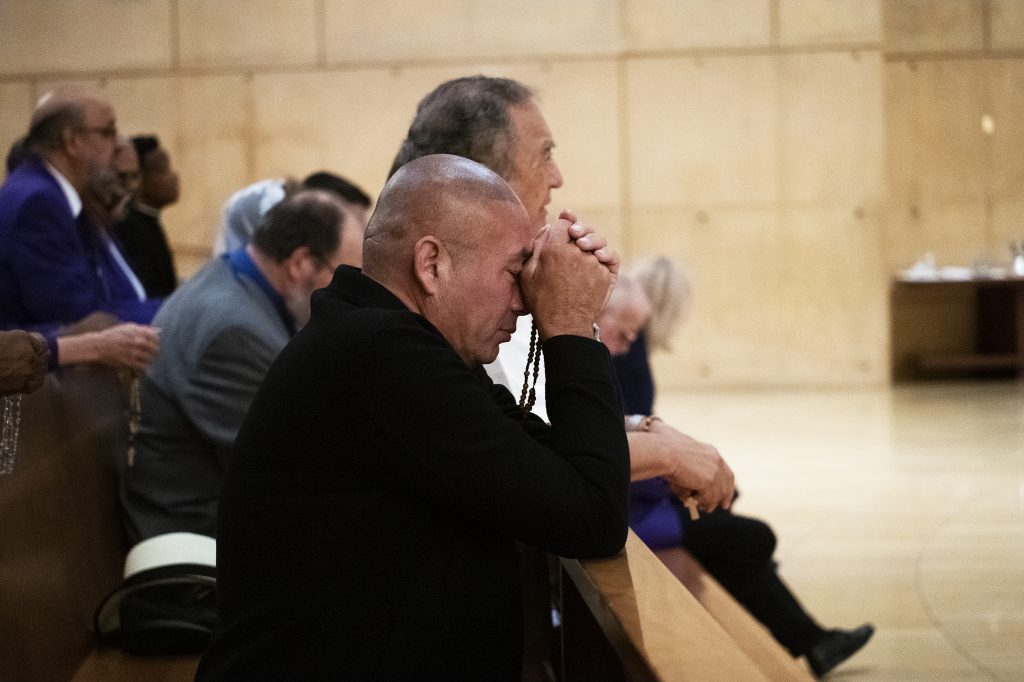Oct. 11 will mark the 60th anniversary of the opening of the Second Vatican Council.
Pope St. John XXIII conceived Vatican II as an opportunity for the world’s bishops to reflect on the Church’s mission in the modern world.
The chief question was how the Church’s ancient truths and spiritual riches could best be presented to proclaim Jesus Christ as the light of the world, and bring the people of our times to a new encounter with his promise of salvation.
Most Catholics today have no memory of the Church before Vatican II, they’ve simply grown up with the vision of faith and life handed on by the council.
But 60 years is not a long time in the life of the Church. The work of Church councils has been compared to planting seed. It takes time, maybe centuries, for their fruits to fully develop.
For me, Vatican II’s most beautiful “seed” is its teaching on “the universal call to holiness.” In the council’s document on the Church, “Lumen Gentium” (“Light of the Nations”), we read:
“Everyone in the Church … is called to holiness. … The Lord Jesus, the divine teacher and model of all perfection, preached holiness of life to each and every one of his disciples of every condition. … They must follow in his footsteps and conform themselves to his image seeking the will of the Father in all things. They must devote themselves with all their being to the glory of God and the service of their neighbor.”
This is such a thrilling vision of our life as disciples, as followers of Jesus!
The council rediscovered the key to Jesus’ teaching in the Sermon on the Mount: “So be perfect, just as your heavenly Father is perfect.”
To be perfect means to be holy, as God is holy. And holiness is the perfection of love. And Jesus gives us no options. His words are a command. To every one of us.
The truth is that we are created to be saints. Holiness is our vocation, the purpose of our lives. St. Paul taught: “This the will of God, your holiness.”
Sixty years later, we are still trying to work out what this means.
The council reminds us that holiness is not something only for special people, or for those in the Church with ordained or consecrated ministries. All of us in the Church are called to holiness, each in our own way.
No matter who we are, no matter what our condition in life, you and I are all called to walk in the footprints of Jesus, to conform our lives to his image, and to seek the Father’s will in everything that we do.
In practice, this means that we need to try to be saints in the middle of the world. Jesus meets us, and calls us to follow him, in the ordinary circumstances of our everyday lives.
The saints teach us that we grow in holiness and virtue little by little, day by day. Little things matter in a big way.
So we need to be faithful to our spiritual life: Are we making time to pray every day? Are we spending time with Jesus by reading the Gospels? Do we set aside a few minutes before Mass to prepare ourselves to meet Jesus in the Eucharist, in holy Communion especially?
So much of our growth in the spiritual life is about keeping faithful to our devotions and practices. Spending time in prayer, asking the Lord for guidance, asking the Lord for help. Even when we are tired, even when we don’t feel like doing it.
We also need to be faithful in the little things of charity, of love. That means being devoted to your wives and husbands, it means carrying out your duties in your families. It means responding generously to people who need your help, or even just your attention, or just a little bit of your time.
Our Catholic faith is never about grand gestures. It’s about quietly doing the things that we know we should be doing, every day. Holiness happens in our homes, at the dinner table. It happens in school, and at work. Caring for your elderly parents.
That is the great teaching of Vatican II: we become holy, as our Father in heaven is holy, by following his Son on earth, by doing what Jesus would want us to do in all the little and ordinary realities of our daily lives.
Pray for me, and I will pray for you.
And in this month that we dedicate to the most holy rosary, let us ask Our Blessed Mother Mary to help the seeds of Vatican II keep growing, and to renew in each of us a new desire to answer the call to holiness, to be saints.

